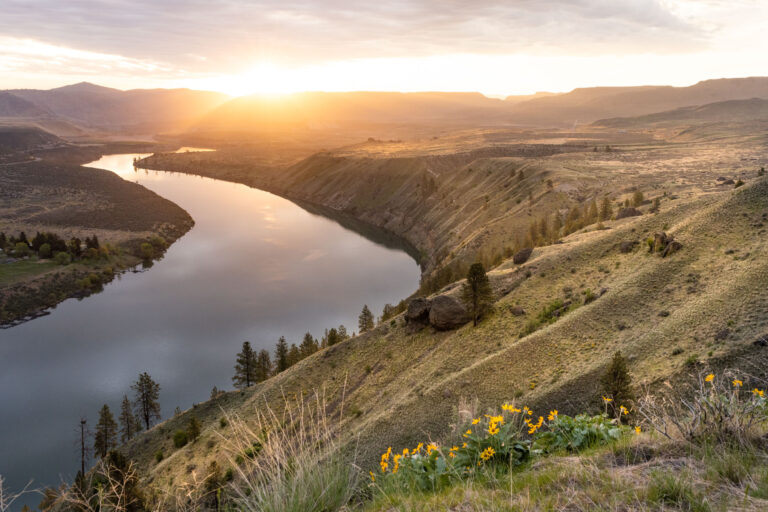Grant Wencel, the City of Spokane’s first Bike/Ped Coordinator, worked as a landscape architect for 20 years before pursuing a master’s degree in city planning. He comes to Spokane from Bend, Oregon, having worked for the past two years as a City of Redmond city planner. He sat down for an interview with OTM after just a few weeks at his new job.
OTM: What is your job as Spokane’s Bike/Ped Coordinator?
GW: Being the point person for anything bike related. One of the ten [responsibilities outlined by city council] would be to streamline some funding strategies. Another one would be, any changes to our requirements in the plan, bike-related, to make those modifications.
It’s a new position, and there’s been a lot done, especially in the last two years in preparation for this. They’ve had the Bicycle Advisory Board for many, many years. The mayor’s been pushing for this position; she’s been a driving force. Just a couple of weeks ago, city council approved a Master Bike Plan.
Like I said, being a point person for information to flow to, implement the bike plan.
OTM: I’m sure that’s more than enough to keep busy.
GW: There’s a lot to think about right now. I’m not overwhelmed – yet.
OTM: I understand there’s a lot of grant-writing involved in the position.
GW: That’ll be part of it.
OTM: Do you have any background in that sort of thing?
GW: No. [Senior engineer] Katherine Miller, my supervisor, is on top of that. I’m sure I’ll grow and learn.
OTM: What are the basics of the plan?
GW: It shows, in 20 years, this is our system of bike routes, bike lanes, places where it’s a shared lane. It’s something to direct us and point to—this is what we want to do. I’m sure we’ll have to be flexible in some places about the realities of what we want to do on specific streets.
OTM: What are the ideas that are on the table, say for example in places where bike lanes might interfere with street parking?
GW: Probably half the solution is an education solution, not a political solution. To get motor vehicle operators to understand there’s bikes there and share the road, and bikes to kind of do the same thing. It’s etiquette, and that’s education thing and it’s a cultural thing. Sometimes you can’t make the political changes that you want to because you’d have to give up too much. Say, a lane of traffic, or a park. Sometimes it’s a balance of what you do where.
OTM: Have you found any pet projects among the proposed improvements?
GW: One of my goals right now is on my scooter or on my bike, to travel every area I see on the new bike plan. It’s hard for me to prioritize things yet.
OTM: What do you look forward to learning about in this position?
GW: Well, first of all, I just need to get to know the city. I mean, that’s why already I’ve been out walking and biking and driving. Just to get to know your city, get to know the people, the politics, the people that are decision-makers that I need to be communicating with.
Probably the passion of this job would be for me to help create and improve outdoor spaces for people, for people to use when they’re not in their cars, however they do that, be it walking or biking or running. That’s probably what I can bring from my background to this position.
OTM: What drew you to this job?
GW: My varied background is an asset. Before, I was very specialized. I was a golf course architect, and boy—that’s what you do. [City] planning is so broad; you have to know a little bit of everything. This [position] kind of drills me down to being a specialist within the planning field, and I kind of like that after experiencing both extremes.
OTM: How can people voice their Bike/Ped-related concerns to you?
GW: I want to hear from everyone that uses the streets and walks the streets, that drives and bikes the streets. What their comments are, their objections, problems, then I can use that and represent them as best I can. I can’t promise to do everything. There’s certainly a political process, a funding process. What I do feel good about is having this plan. It gives us a tool and a guide. All kinds of people have weighed in on it to direct the improvements.
[Bend] is a very bike-friendly town. They’ve got a ton of roundabouts and bike lanes and trails. Just seeing that and living that, I know it’s possible. But I do give older cities the benefit of the doubt.
Here in Spokane, I think you’ve talked about a lot of things, there just hasn’t been an opportunity yet. So I’d be disappointed if I didn’t see some actual projects happen, rather than all the meetings, all the strategies on plans on paper. Now’s the time to actually make some things happen.













